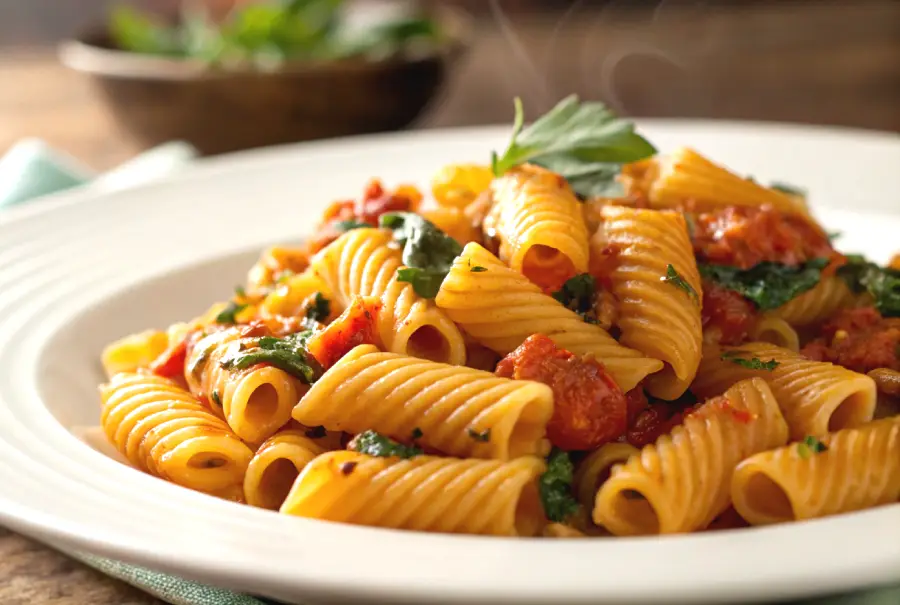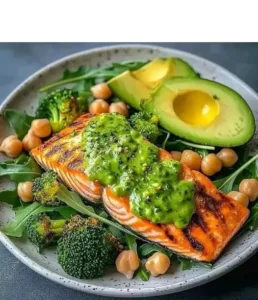High-Protein Rigatoni
Description:
High-Protein Rigatoni is a nutritious twist on a classic Italian pasta dish, offering a healthy boost of protein without sacrificing flavor. Made with rigatoni pasta that’s enriched with protein, it’s ideal for anyone looking to fuel their body with quality nutrients after a workout, or anyone simply wanting to add more protein to their diet. The hearty, ridged texture of rigatoni allows it to capture sauces beautifully, making it a versatile base for various toppings. Typically paired with lean meats, legumes, or vegetables, it’s a satisfying meal that doesn’t compromise on taste.
Ingredients (for 4 servings):
- 400g high-protein rigatoni
- 200g lean ground turkey or chicken
- 1 tbsp olive oil
- 1 onion, diced
- 2 cloves garlic, minced
- 1 can (400g) crushed tomatoes
- 1 tbsp dried basil
- 1 tbsp dried oregano
- Salt and pepper to taste
- 1/4 cup grated Parmesan (optional)
- Fresh basil for garnish (optional)
Calories:
Approximately 450-500 calories per serving (depending on protein content in the rigatoni and the amount of added toppings).
How to Cook:
- Boil a large pot of salted water and cook the high-protein rigatoni according to package instructions (about 10-12 minutes).
- While the pasta cooks, heat olive oil in a pan over medium heat. Add onion and garlic, sautéing until softened (about 2-3 minutes).
- Add ground turkey or chicken, cooking until browned. Stir in crushed tomatoes, basil, oregano, salt, and pepper. Simmer for 10-15 minutes.
- Drain the rigatoni and toss it with the sauce. Garnish with Parmesan and fresh basil, if desired. Serve hot.
History:
Pasta has been a staple in Italian cuisine for centuries, with its roots tracing back to ancient civilizations. High-protein variations like this are part of the modern push towards healthier, more nutrient-dense versions of traditional dishes, aiming to meet the demands of fitness enthusiasts and those pursuing higher-protein diets. Rigatoni, known for its ridged surface, was originally created in Southern Italy and became popular across the world due to its ability to hold sauces. This high-protein variation brings the classic dish into the 21st century, catering to both taste and nutritional needs.





